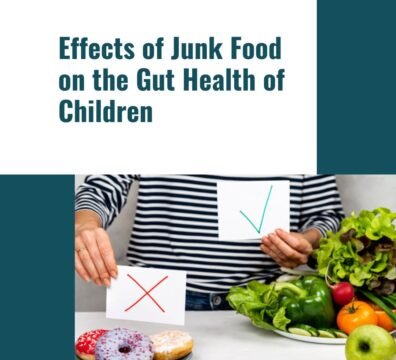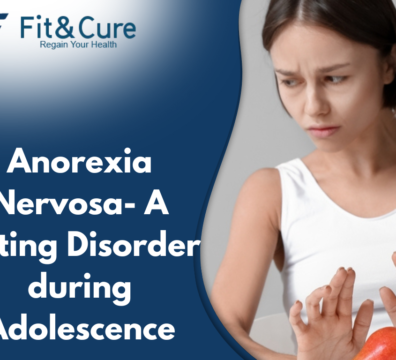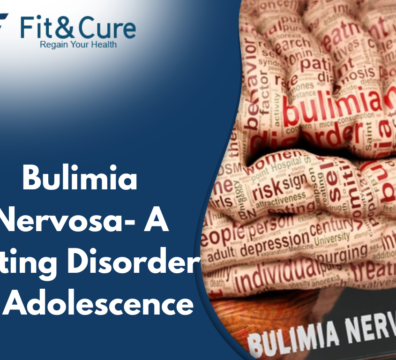
Kids & Adolscent
About The Program
- Childhood Obesity: Poor diet and lack of physical activity can lead to childhood obesity, increasing the risk of chronic diseases like diabetes and heart problems.
- Dental Health: Dental issues, such as cavities and gum disease, can arise from excessive sugar consumption and inadequate oral hygiene.
- Mental Health: Children may experience stress, anxiety, or depression due to academic pressures, bullying, or family issues.
- Developmental Disorders: Some kids may face developmental challenges, including learning disabilities and attention-deficit/hyperactivity disorder (ADHD).
- Nutrient Deficiencies: Improper nutrition can lead to nutrient deficiencies, affecting growth and cognitive development.
- It's crucial for children to maintain proper nutrition and a balanced diet from an early age because this foundation supports their growth and development. A nutritious diet ensures they receive essential vitamins, minerals, and energy for physical and mental growth, strong bones, and a robust immune system.
- Promoting healthy eating habits and regular physical activity sets the stage for a lifetime of well-being. Early nutritional interventions can prevent or mitigate health issues and improve the overall quality of life for children as they grow into adulthood.
Best Dietician in Noida – Promoting healthy eating habits and regular physical activity sets the stage for a lifetime of well-being. Early nutritional interventions by the Best Dietician in Noida can prevent or mitigate health issues and improve the overall quality of life for children as they grow into adulthood.

Infant
Infants aged 6 to 12 months go through a crucial period of growth and development, but they can also face specific health challenges during this time:
- Nutrient Transition: As infants transition from breast milk or formula to solid foods, they can encounter nutrient gaps if they don't receive a well-balanced diet.
- Food Allergies: Introducing new foods can lead to food allergies or sensitivities, which can cause digestive discomfort or allergic reactions.
- Growth and Development: Nutritional deficiencies during this period may affect physical and cognitive growth milestones.
- Oral Health: The eruption of teeth can lead to teething discomfort and potentially oral health issues if proper dental hygiene isn't maintained.
- Digestive Changes: Infants may experience changes in bowel habits, such as constipation or diarrhea, as their digestive systems adapt to new foods.
- Proper nutrition and diet from the beginning are essential for infants in the 6-12 month age range because they support healthy growth and development. During this critical period, infants need a variety of nutrient-dense foods to meet their energy and nutritional requirements. A balanced diet helps ensure proper weight gain, muscle development, and cognitive progress.
- Introducing age-appropriate, nutritious foods gradually and monitoring for allergic reactions can help infants establish healthy eating habits and minimize potential health issues. Proper nutrition is foundational to their overall well-being and sets the stage for a lifetime of healthy eating habits.

Toddlers
Toddlers between the ages of 1 and 3 years are at a stage of rapid growth and development, but they can encounter various health issues during this period:
- Nutrient Deficiencies: Poor eating habits can lead to nutrient gaps, potentially affecting growth and development.
- Food Preferences: Toddlers may develop strong food preferences or aversions, which can limit their diet diversity.
- Oral Health: Improper dental care and excessive consumption of sugary foods and drinks can lead to cavities and oral hygiene problems.
- Growth Challenges: Malnutrition or inadequate nutrition can result in stunted growth or weight issues.
- Digestive Problems: Dietary changes may cause digestive issues like constipation or diarrhea.
- It is vital for toddlers to maintain proper nutrition and a balanced diet from the beginning because this period lays the foundation for their lifelong health and habits. Adequate nutrition supports physical and cognitive development, ensuring they reach crucial developmental milestones.
- A varied diet rich in essential nutrients is essential for toddlers' growth, immune system function, and overall well-being. Encouraging healthy eating habits early on helps prevent future health issues and establishes a positive relationship with food. Parents and caregivers play a vital role in modeling and providing nutritious meals, setting the stage for a lifetime of healthy eating habits and reducing the risk of nutritional deficiencies and related health problems.

School Age
School-age children, typically between 4 and 12 years old, may encounter various health issues during this period:
- Obesity: Poor diet and lack of physical activity can lead to childhood obesity, increasing the risk of chronic diseases.
- Oral Health: Dental problems, including cavities and gum disease, can result from sugary snacks and inadequate oral hygiene.
- Nutrient Intake: Limited food preferences or picky eating habits may cause nutrient deficiencies.
- Mental Health: School-related stress or bullying can affect children's mental well-being.
- Vision and Hearing: Undetected vision and hearing problems can impact learning and social interactions.
- It is crucial for school-age children to maintain proper nutrition and a balanced diet because this stage is pivotal for growth, development, and overall health. Good nutrition supports physical and cognitive development, ensuring children reach their potential in both areas.
- A varied diet rich in essential nutrients is necessary to support their growing bodies and minds. Encouraging healthy eating habits early helps prevent childhood obesity and related health problems. Parents, caregivers, and schools should promote nutritious meals, provide access to healthy food options, and educate children about making nutritious choices. Establishing these habits during the school-age years sets the stage for a lifetime of healthy eating, reducing the risk of health issues and fostering a positive relationship with food.

Adolscent
Adolescents, typically aged 12 to 18 years, encounter several unique health challenges during this transformative period:
- Nutritio: Unhealthy eating habits, such as excessive fast food consumption and erratic meal schedules, can lead to nutritional deficiencies and poor dietary choices.
- Body Image and Eating Disorders: Adolescents may struggle with body image issues and may develop eating disorders like anorexia or bulimia.
- Mental Health: The pressures of school, social life, and self-identity can contribute to mental health issues like anxiety and depression.
- Physical Activity: A decline in physical activity due to increased screen time and academic demands can lead to a sedentary lifestyle. Substance Use: Adolescents may experiment with tobacco, alcohol, or drugs, increasing the risk of addiction and related health problems.
- Proper nutrition and a balanced diet are crucial from an early age, as they set the stage for a lifetime of healthy habits. During adolescence, a balanced diet supports physical growth, cognitive development, and hormonal changes. It also helps prevent nutritional deficiencies, eating disorders, and chronic health conditions.
- Promoting healthy eating habits, regular physical activity, and open communication about mental health is essential during this critical period. Parents, caregivers, and schools play a pivotal role in educating and supporting adolescents to make informed choices that positively impact their health and well-being, ensuring they develop into healthy and resilient adults.
What we provide in Diet plans?
-
One on One consultation with
our expert nutritionist. -
Personalised Diets & Support
throughout the plan. -
Guidance on Lifestyle
Management. -
Support from the team
( 9 AM to 8 PM) on WhatsApp


Regain Your Health
Unlock the nutritional power with our experts for a healthier life
Posted onTrustindex verifies that the original source of the review is Google. I took Fit andCure’s nutritional program for my teenager son who’s very active in sports. We reside in UAE. Our nutritionalist - Arushi, customized a plan that really boosted his stamina. Her knowledge and attention to detail were outstanding, and she was always available to answer questions and offer encouragement. The results have been fantastic, and we couldn’t be happier with her guidance! I highly recommend Fit and Cure’s nutritional program for young athletes!Posted onTrustindex verifies that the original source of the review is Google. Arushi is a wonderful nutritionist and a god sent angel for my family and friends. She has a very holistic approach when it comes to nutrition. I love the way how she patiently explains about food and nutrition. She will listen to all your queries patiently with great attention to detail and often addressing questions before they were asked. Her meal plans are simple and doable from ingredients easily available in the kitchen. She goes above and beyond as a nutritionist which is very kind of her. She reaches out immediately to all my doubts or difficulties. She will be there 24*7. I will definitely be consulting her, multiple times. Thank you Arushi for taking care of us like a family member. Blessed to have met you.Posted onTrustindex verifies that the original source of the review is Google. As a 14-year-old badminton athlete, I reached out to fitandcure team for help with my liver health, and the results have been amazing! They tailored a plan that not only supported my liver but also boosted my energy levels for training and matches. The diet was easy to follow and worked perfectly with my intense athletic schedule. I’ve noticed a significant improvement in my performance and overall well-being. I highly recommend fitandcyre to young athletes looking for expert nutrition guidance!Posted onTrustindex verifies that the original source of the review is Google. I worked with fitandcure team to improve my liver health, and the results were incredible! They created a personalized plan focusing on liver-friendly foods that were easy to incorporate into my routine. Within weeks, I felt more energized and noticed improvements in my overall health. The ongoing support and expert guidance made the entire process simple and manageable. I highly recommend Arushi sharma for anyone looking to improve their liver health naturally!Posted onTrustindex verifies that the original source of the review is Google. I recently took a weight loss program with fitandcure, and I am beyond satisfied with the results! From day one, they took the time to understand my lifestyle, preferences, and goals, providing me with a customized meal plan that was easy to follow and tailored to my needs. What I loved most was how sustainable the plan was—no extreme dieting, just balanced nutrition that helped me lose weight while feeling energized. The weekly check-ins and constant support made all the difference, keeping me motivated and accountable. I highly recommend fitandcure team to anyone looking for a healthy and effective way to lose weight. It was a life-changing experience!Posted onTrustindex verifies that the original source of the review is Google. I took food plans for my mother who got a blood test done recently. A few parameters were not good like thyroid and HbA1c, so I consulted fitandcure and they made it so easy without medicine and now my mother feels good and follows a healthy lifestyle. Also, her deranged parameters are now normal.Posted onTrustindex verifies that the original source of the review is Google. For the last 1.5 years I have been facing acid reflux problems. I tried going to various doctors and had many medicines but nothing helped. I came across furniture who really changed the game. They really helped me cure my gut issues, improvement by reflux issues and made me understand the basic things which help me correct my condition. Today, I am free from medicines and can lead a healthy life by managing my diet and lifestyle. Thanks a lot fit&curePosted onTrustindex verifies that the original source of the review is Google. FitandCure have some amazing and knowledgeable experts and Ms. Arushi is fantastic! She created a personalized plan that fit my lifestyle perfectly, and the results have been amazing. Her knowledge and genuine care made the whole process enjoyable and easy to follow. I’m feeling healthier, more energized, and couldn’t be happier with the guidance I received. Highly recommend!Posted onTrustindex verifies that the original source of the review is Google. Arushi has been incredible throughout my father’s cancer journey. Her care didn’t stop with just treatment — she stayed supportive even after, always checking in. She truly listened and showed real empathy. My family couldn’t have asked for better support.Posted onTrustindex verifies that the original source of the review is Google. Fitandcure are really great professionals, they know their job very well. They understand the needs of the customers and guide them in the right way. The best part is that they connect with you like a family member. I am an athlete and they have been working with me for the last one month and I am getting really good results in my weight loss journey without going to the gym, apart from this they are also guiding me to get good results in my sports so that I can achieve my goal. I am happy with them.
Types of Consultation
Consultation With Fit&Cure
- 1. Follow-ups-in Our Groups
- 2. Consultation Per Week By Expert
- 3.Personalized Diet Plans Permonth
- 4.Constant 9 am - 9 pm WhatsApp support
Blogs
Effects of Junk Food on the Gut Health of Children
Introduction The fast pace at which many people lead their lives today dictates convenience as superseding nutrition, particularly with regard to the feeding of children.…
Anorexia Nervosa- A Eating Disorder during Adolescence
Anorexia Nervosa is a psychological eating disorder in which a person refuses to maintain a minimally normal body weight for height & age. They have…
Bulimia Nervosa- A Eating Disorder in Adolescence
Bulimia Nervosa is a disorder characterized by episodes of binge eating or very rapid intake of large amounts of high calorie food accompanied by self-induced…
FAQs
Nutrition is the science behind food and how our bodies use it. It is essential for overall health, providing the energy and nutrients needed for growth, repair, and maintenance.
Start by incorporating a variety of fruits, vegetables, lean proteins, whole grains, and healthy fats into your meals. Limit processed foods, sugar, and excessive salt intake.
A balanced diet includes a mix of carbohydrates, proteins, fats, vitamins, and minerals in appropriate proportions to meet your body's needs. Including water in the right quantity is an equally important concept that needs to be considered when we talk about balanced nutrition.
The calorie needs differ from person to person based on various factors such as age, gender, activity level, and other factors. It is best to consult a nutritionist in order to understand the specific daily calorie requirement for an individual.
Macronutrients include carbohydrates, proteins, and fats, which provide energy (e.g., whole grains, pulses and legumes, nuts and seeds, etc.). Micronutrients are vitamins and minerals that support various bodily functions (various fruits and vegetables).
Complex carbohydrates (e.g., whole grains, and vegetables) provide sustained energy, while simple carbohydrates (e.g., sugar) offer quick energy but can lead to energy crashes.
No, not all fats are bad. Healthy fats, like those found in avocados, nuts, seeds, fish and olive oil, can be beneficial for your health when consumed in moderation.
Focus on creating a calorie deficit through a balanced diet and regular physical activity. Crash diet and extreme restrictions are not recommended. Such diets can be fatal to health.
Plant-based protein sources include beans, lentils, tofu, tempeh, nuts, seeds, and quinoa. Dairy alternatives, cereal–pulse combinations, and protein-rich vegetables such as spinach, potatoes, asparagus, broccoli, and sweet potatoes also contribute.
Pay attention to serving sizes, calories, macronutrients, and the ingredient list. Look for low-added sugar and prioritize whole, unprocessed foods.
Yes, nutrition plays a crucial role in managing conditions like diabetes, heart disease, and obesity. However, it is important to consult a healthcare professional or an expert dietitian for personalized advice.
Supplements should not replace a balanced diet. They may be necessary for specific nutrient deficiencies, but it's best to consult a healthcare provider before taking them.
Consider consulting a dietitian who can assess your individual needs and provide tailored guidance based on your goals and health status.
Plan meals, buy in bulk, opt for seasonal produce, and minimize food waste. Explore affordable protein sources like beans and legumes.
Our website offers a variety of nutritious recipes tailored to different dietary preferences and needs. Browse our recipe section for ideas.
Children need a balanced diet with plenty of fruits, vegetables, whole grains, lean proteins, and dairy or dairy alternatives. We need to limit the intake of sugar-based snacks, processed foods, and processed and preserved drinks.
Make healthy foods appealing, involve kids in meal planning and preparation, and be a role model by eating nutritious foods yourself.
Certain nutrients and dietary choices can influence hormone balance. Consult a healthcare professional or dietitian for personalized guidance.
Men should focus on a diet rich in fruits, vegetables, whole grains, lean proteins, and healthy fats to support overall health and prevent chronic conditions.
Yes, diet can play a role in fertility. Maintaining a healthy weight and consuming key nutrients like zinc and antioxidants may enhance fertility in men. Consult a healthcare professional or dietitian for personalized guidance.
Proper nutrition can help regulate menstrual cycles, manage PMS, and support hormonal balance during menstruation and during menopause. Consult a healthcare professional or dietitian for personalized guidance.
Yes, pregnant and lactating women require additional nutrients like folic acid, iron, and calcium. As it is a period of rapid growth and development, it is best to consult a healthcare provider or a dietitian for personalized nutrition advice.
Blogs
How to Make Fasting Food Healthier and More Nutritious
Fasting during religious festivals like Navratri is a time of spiritual and physical cleansing. However, many people end up consuming deep-fried, sugar-laden, and high-carb foods…
Le concept client constitue sur le c?ur pour la pratique mobile de GameTwist
La recherche Jack Top casino en ligne aimante appuie l’apprehension ou se decider du jeu, , l’interface immacule ou purifiee bonifie l’accrod vos competiteurs. Le…
Programa de Fidelidade Roleta: Tudo o que você precisa saber
Se você é um entusiasta de jogos de cassino online, provavelmente já ouviu falar do programa de fidelidade roleta. Este emocionante jogo de cassino tem…
Long Height Image with Hover Effects v2
Another hover effect design with a long height image. Show your team long-height images and apply a hover effect on details.

Harrison
WordPress Dev.
A small river named Duden flows by their place and supplies it with the necessary

Harrison
WordPress Dev.
- Phone:+1 (859) 254-6589
- Email:info@example.com

Elizabeth Sofia
WordPress Dev.
A small river named Duden flows by their place and supplies it with the necessary

Elizabeth Sofia
WordPress Dev.
- Phone:+1 (859) 254-6589
- Email:info@example.com

Charlie Cooper
WordPress Dev.
A small river named Duden flows by their place and supplies it with the necessary

Charlie Cooper
WordPress Dev.
- Phone:+1 (859) 254-6589
- Email:info@example.com

Lucy Evelyn
WordPress Dev.
A small river named Duden flows by their place and supplies it with the necessary

Lucy Evelyn
WordPress Dev.
- Phone:+1 (859) 254-6589
- Email:info@example.com





